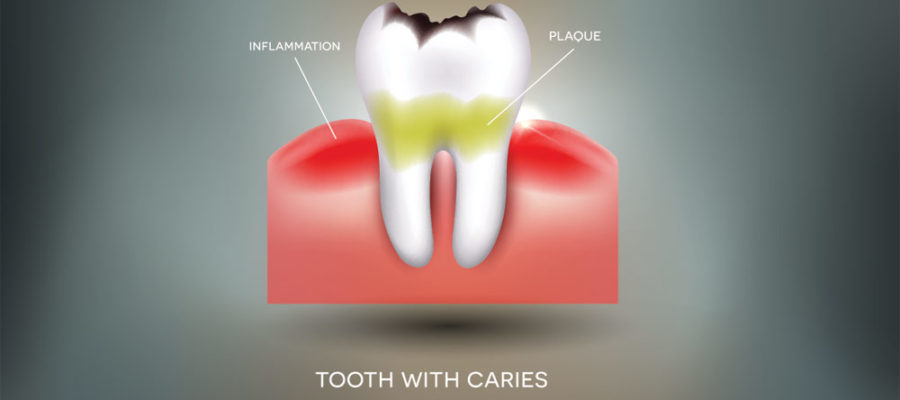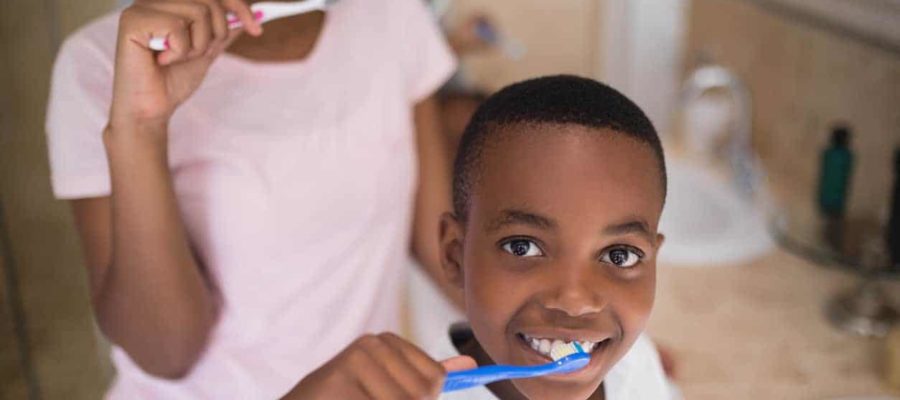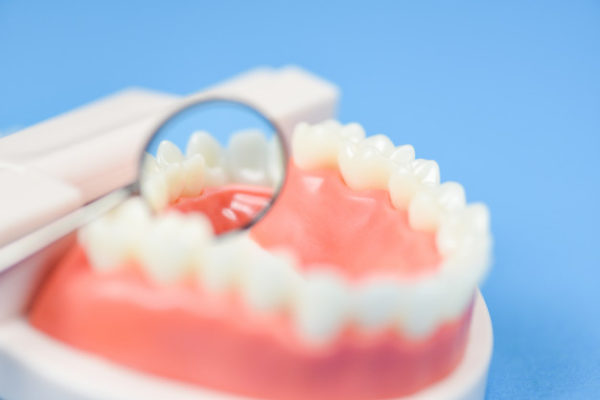By now, you’re probably tired of reading about COVID-19 (or novel coronavirus). It has saturated every news outlet, every post in your newsfeed and every dinner conversation; but even so, you still have questions.
As our country starts taking greater steps to quarantine and self-isolate during this time to try to minimize the spread of the virus, there are some important things to think about when it comes to your dental health.
Oral health has a great impact on our general health, and vice versa, so caring for both during this crisis is critical. That’s why we’ve put together this guide: to help answer some of your questions about coronavirus as it pertains to your dental health at home and visiting the dentist.
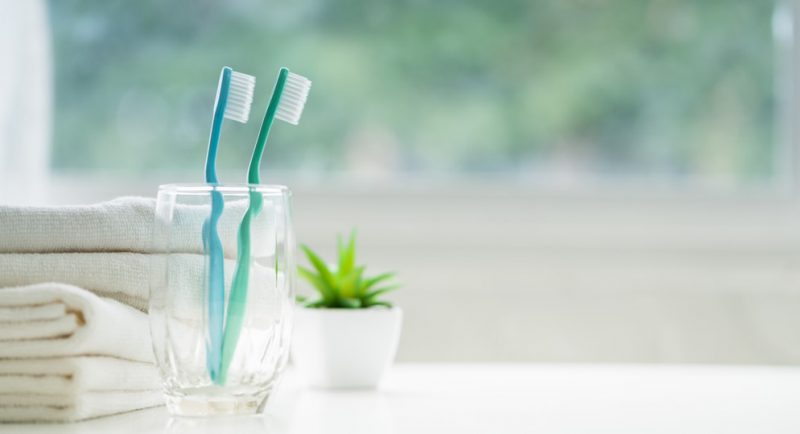
Can I Still Go to the Dentist?
While measures are being put into place by cities and states in how they respond to this pandemic, based on federal recommendations and those presented by the CDC, dental offices are getting creative in how they still see their patients.
Listed below are some of the policies being put into place by dental offices around the country (and the world) to keep patients and dental staff safe:
- No waiting rooms. Your dental office has likely already closed their waiting areas. Instead, when you arrive at the dentist, you are taken straight back to a treatment room. This is why it’s very important to call ahead before your appointment to understand what protocols they have in place. This means toys and magazines will also be removed and your wait times should be less!
- Treatment and checkout take place in the treatment room. Dental offices are trying to minimize movement and contamination in their office so everything will be brought directly to you at your dental visit.
- No-touch door handles. Some dental offices are even installing foot handles on their front doors so you don’t even need to touch the handle to the door when you arrive.
- Sanitation teams. Dental offices are already very sanitary. They consistently wipe down areas and use gloves when they are working on your dental treatment, but they are increasing these efforts even more in light of the coronavirus outbreak.
- Patient screenings. Your dentist will likely ask you a few questions before your visit about where you have traveled or if you know anyone who has tested positive for COVID-19. If you have been exposed to the virus and have an immediate dental need, don’t let that keep you from calling your dental office to find out what you need to do.
Caring for your dental health, especially when you are sick or there is a serious illness like this going around, is so important for your overall health. The two affect each other so much so we want to be diligent to still keep up with our dental health even in the midst of this crisis.
How Will Dentists Handle Dental Emergencies?
Dental offices across the U.S. will be ready to accept dental emergencies at their office at this time. They want to help relieve hospital emergency departments who will already be swamped.
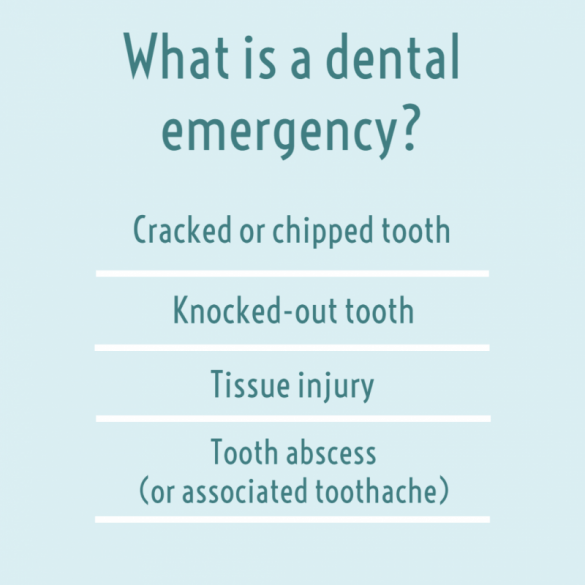
Dental emergencies include:
- Cracked or chipped tooth
- Knocked-out tooth
- Tissue injury
- Tooth abscess (or associated toothache)
Our plans are affordable, easy to use and you have the added benefit of being able to use it IMMEDIATELY for whatever work you need.
We are equipped and ready to help you get savings even in a dental emergency.
What Should I Do About Planned Dental Visits and Treatments During this Time?
Did you have a dental visit planned this week or in the coming weeks but are unsure of what to do next? Call your dental office to find out what they would recommend.
Your dentist will be able to provide a better recommendation about your current treatment status and the state of coronavirus precautions in your area.
Should I Visit the Dentist Right Now If I’m a Senior?
Unfortunately, seniors and those with compromised immune systems are at an increased risk of complications if exposed to novel coronavirus and have been advised to stay home during this pandemic.
If you fall into either one of these categories and you have a dental emergency or another dental need, please call your dental office right away, remind them of your concerns of being exposed to COVID-19 and ask for their recommendation on how you can get help.
Will Coronavirus Affect At-Home Dental Care?
How Do Respiratory Viruses and Colds Affect My Oral Health?
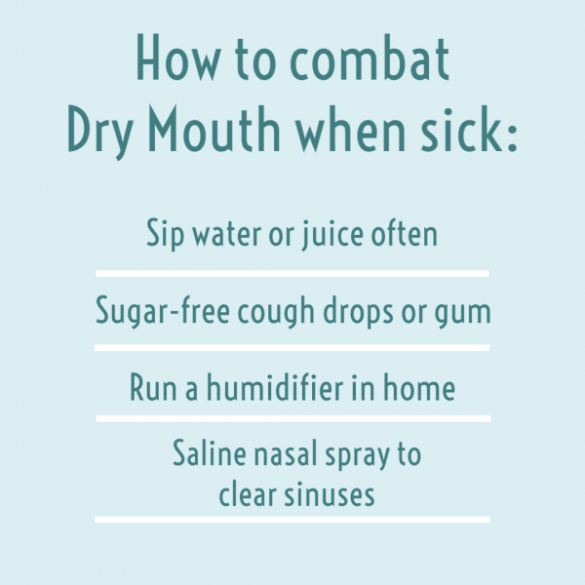 Often, these illnesses force us to breathe through our mouth more than our nose, which causes dry mouth. Additionally, the medications we usually take to help colds and respiratory viruses can reduce saliva flow, contributing to even worse dry mouth.
Often, these illnesses force us to breathe through our mouth more than our nose, which causes dry mouth. Additionally, the medications we usually take to help colds and respiratory viruses can reduce saliva flow, contributing to even worse dry mouth.
Dry mouth promotes the growth of bacteria in your mouth, which increases your chances of developing tooth decay and gum disease.
To combat dry mouth while also treating your cold or coronavirus symptoms:
- Keep water or juice nearby and sip frequently to keep your mouth lubricated
- Suck on sugar-free cough drops or chew sugar-free gum to stimulate saliva flow
- Run a humidifier in your home to add moisture to the air and soothe your dry throat
- Use a saline nasal spray to help clear nasal passages
Also remember to brush and floss your teeth daily to maintain good oral health.
How Can I Make Sure My At-Home Dental Products (Toothbrushes, Mouthwash, etc.) Stay Germ-Free?
- Make sure your toothbrush has a separate holder
- Don’t share mouthwash
- Wash your hands before flossing your teeth
- Replace your toothbrush after you have been sick
During the coronavirus pandemic or any cold or respiratory virus you experience, you should take some extra steps in safeguarding your at-home dental products to decrease the risk of reinfecting yourself or infecting others. Below are some quick and easy tips you can follow to keep your dental products germ-free:
- Make Sure Your Toothbrush Has a Separate Holder
Studies have shown that putting your toothbrush in the same holder as another family member can actually spread bacteria from one brush to the other. Especially when experiencing a contagious illness like COVID-19 or the flu – but even on a regular basis – you should keep your toothbrush in a separate holder from other family members’ toothbrushes. - Don’t Share Mouthwash
You’ve seen the HUGE bottles of mouthwash you can get from the store. If you’ve thought it’s okay to share the cap when getting mouthwash from the bottle, think again. To reduce the spread of this virus or other infections, pour your mouthwash into a disposable paper cup or plastic cup only you use. If using a plastic, reusable cup, make sure you thoroughly clean it every couple of days. - Wash Your Hands Before Flossing Your Teeth
Before you floss your teeth, make sure your hands have been thoroughly washed and cleaned. The easiest way to spread infection is touching your eyes, nose or mouth with unclean hands. Wash your hands before handling your floss. - Replace Your Toothbrush After You Have Been Sick
If you’re a bit of a germophobe like me, you may be wondering at what point you should change your toothbrush if you have novel coronavirus or another illness, like the flu or a cold. Advice on this subject is actually split:- No, you don’t have to replace your toothbrush after you have been sick.
Some experts say you don’t really need to worry about this unless your immune system has been severely compromised. Having already experienced the virus, your body has built up immunity to the disease so you will not likely be reinfected with it, which means your toothbrush should be safe to use again.
- Yes, you definitely need to replace your toothbrush after you have been sick.
Other experts defend the stance that you should definitely replace your toothbrush after you have been sick, as bacteria live on toothbrushes after you use them. They say replacing your toothbrush is an easy way to make sure lingering bacteria doesn’t lead to reinfection or get passed on to other family members.While advice may be split on this subject, because novel coronavirus (COVID-19) is so new and highly contagious to those around us, we recommend replacing your toothbrush after you have been sick (maybe even after symptoms have disappeared and then again when you return two negative test results for the virus).
- No, you don’t have to replace your toothbrush after you have been sick.
What Should I Do If I Get Sick with Coronavirus (COVID-19)?
Whether you have received a positive COVID-19 test back, have symptoms of the virus or believe you could have been exposed to novel coronavirus, here are some steps to follow, according to the CDC, to prevent the spread of the virus:
- Stay home. People who are mildly ill will be able to recover at home but need to prevent the spread of the disease to others. The CDC is advising all individuals to stay home whenever possible and limit exposure to others.
- Stay in touch with your doctor. Call your doctor before you get medical care, or consider using a telemedicine service to visit the doctor without having to go to a physical office for care. If they believe you have COVID-19 symptoms, they will likely recommend you go to a facility nearby to get tested. Many facilities will need some notice before your arrival so they can preapre and prevent potential spread of the virus at that facility.
- Avoid public transportation.
- Stay away from others as much as possible and create a designated sick room in your home.
- Limit contact with pets and animals.
Can I Go to the Dentist If I Have a Dental Emergency and Have COVID-19?
This has not received much discussion just yet. Presumably, COVID-19 contagions are only present 2-14 days from exposure but a lot is still unknown about the virus.
CDC is recommending quarantine until you receive 2 negative COVID-19 tests back (taken 24 hours apart). If you happen to experience a dental emergency within this timeframe, contact your dentist and make them fully aware of the situation so they understand what is at risk and how they might be able to help you given your situation.
Our dental plans can be used in the midst of a dental emergency if you need care right away. Call our office or sign up online to get access to a plan immediately.
Where Can I Find Affordable Dental Care If I Lose My Job?
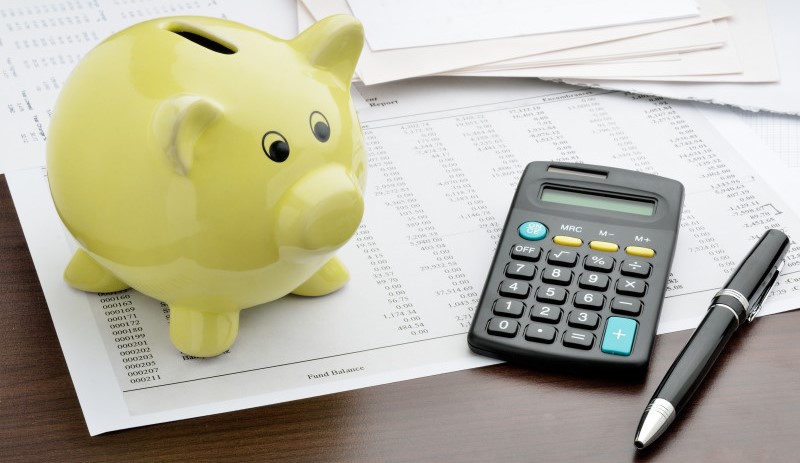
Sadly, our economy is being hit hard by the coronavirus pandemic. If you have already experienced or anticipate job loss in the coming months as a result of COVID-19, we can help answer at least one uncertainty for you: where you can find affordable dental care for you and your family.

